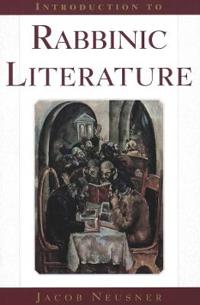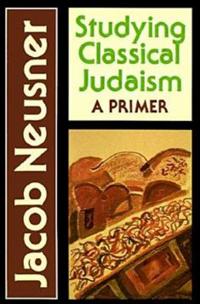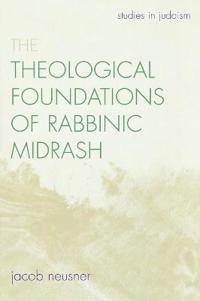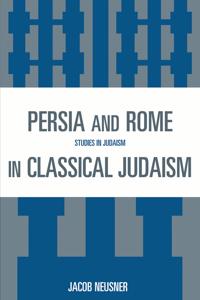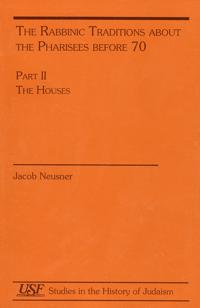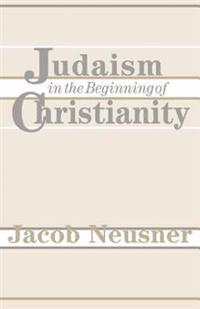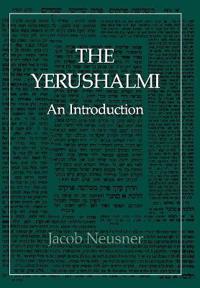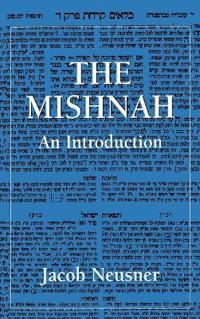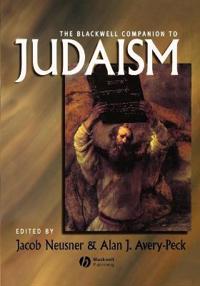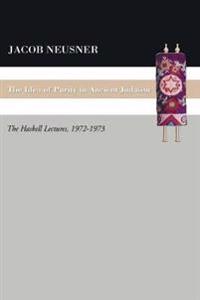Introduction to Rabbinic Literature (Häftad)
avJacob Neusner
ISBN: 9780300140149 - UTGIVEN: 2007-12The rabbis are as important today as they were two thousand years ago, at the dawn of the literature that came to be named after them. The Mishnah, the Tosefta, the Talmuds, the collections of Midrash, and other writings ascribed to the ancient rabbis -- the oral Torah -- were gradually produced bet[...]
Judaism: The Basics (Övrig)
avJacob Neusner (Research Professor Of Religion And Theology, Bard College, Annandale-On-Hudson, New York, USA)
ISBN: 9780415401760 - UTGIVEN: 2006-07-28The oldest of the world's major faiths, Judaism as practiced today represents a tradition that goes back nearly 6,000 years. Accessible and wide-ranging, Judaism: The Basics is a must-have resource covering the stories, beliefs and expressions of that tradition. Key topics covered include: the Torah[...]
Judaisms and their Messiahs at the Turn of the Christian Era (Pocket)
avJacob Neusner, William Scott Green, Ernest S. (EDT) Frerichs
ISBN: 9780521349406 - UTGIVEN: 1988-03While Jews in the land of Israel in ancient times shared much in common - scripture, reverence for the Temple and its cult, some traits as one ?Orthodox? Judaism. Diverse ?Judaisms? flourished, each with its particular way of life, world view, and definition of the social entity, or ?Israel?. Becaus[...]
Studying Classical Judaism (Häftad)
avJacob Neusner
ISBN: 9780664251369 - UTGIVEN: 199103What do we know about the history, literature, and religion of Judaism in its formative age? How do we know it, and why does it matter? In "Studying Classical Judaism," renowned scholar and author Jacob Neusner addresses these and other important questions. Applying many of the same methods Christia[...]
The Theological Foundations of Rabbinic Midrash (Häftad)
avJacob Neusner
ISBN: 9780761834892 - UTGIVEN: 2006-06A theological system and structure form foundations of, and are realized in detail by, the Rabbinic Midrash. That system, comprised by active category formations, turns facts into knowledge and knowledge into propositions of a theological character. The structure embodies the paradigm that solves ne[...]
Persia and Rome in Classical Judaism (Pocket)
avJacob Neusner
ISBN: 9780761841029 - UTGIVEN: 2008-09Persia and Rome in Classical Judaism examines the representation of Rome and Persia (Iran) in the successive groups of documents that comprise the Rabbinic canon of late antiquity. Neusner considers how diverse documents of Rabbinic Judaism represent Rome and Iran and presents the way in which docum[...]
A Rabbi Talks with Jesus (Häftad)
avJacob Neusner
ISBN: 9780773520462 - UTGIVEN: 200002Imagine yourself transported two thousand years back in time to Galilee at the moment of Jesus' Sermon on the Mount. After hearing it, would you abandon your religious beliefs and ideology to follow him, or would you hold on to your own beliefs and walk away? In "A Rabbi Talks with Jesus", Jacob Neu[...]
The Rabbinic Traditions About the Pharisees Before 70 (Pocket)
avJacob Neusner
ISBN: 9780788505744 - UTGIVEN: 1999-0846.95
Judaism in the Beginning of Christianity (Pocket)
avJacob Neusner
ISBN: 9780800617509 - UTGIVEN: 1984-01The Yerushalmi--The Talmud of the Land of Israel (Inbunden)
avJacob Neusner
ISBN: 9780876688120 - UTGIVEN: 1992-12The Yerushalmi, also known as the Jerusalem Talmud or the Talmud of the Land of Israel, is the lesser known and leser studied of the two Talmuds of Jewish tradition. The "talmud" that is generally studied, the one that has had the most profound influence on Jewish life and culture, is actually the B[...]
The Mishnah (Inbunden)
avJacob Neusner, Abraham Joshua Heschel
ISBN: 9780876688762 - UTGIVEN: 1988-12In his brilliant introduction on the Mishnah, Jacob Neusner asks: How do you read a book that does not identify its author, tell you where it comes from, or explain why it was written - a book without a preface? And how do you identify a book with neither a beginning nor end, lacking table of conten[...]
Jacob Neusner
ISBN: 9781479885855 - UTGIVEN: 2016-09Biography: Neusner is a social commentator, a post-Holocaust theologian, and an outspoken political figure. Jacob Neusner (born 1932) is one of the most important figures in the shaping of modern American Judaism. He was pivotal in transforming the study of Judaism from an insular project only condu[...]
The Blackwell Companion to Judaism (Häftad)
avJacob Neusner, Alan Avery-Peck
ISBN: 9781577180593 - UTGIVEN: 200303This Companion explores the history, doctrines, divisions, and contemporary condition of Judaism. * Surveys those issues most relevant to Judaic life today: ethics, feminism, politics, and constructive theology* Explores the definition of Judaism and its formative history* Makes sense of the diverse[...]
The Idea of Purity in Ancient Judaism: The Haskell Lectures, 1972-1973 (Häftad)
avJacob Neusner
ISBN: 9781597525848 - UTGIVEN: 200605

